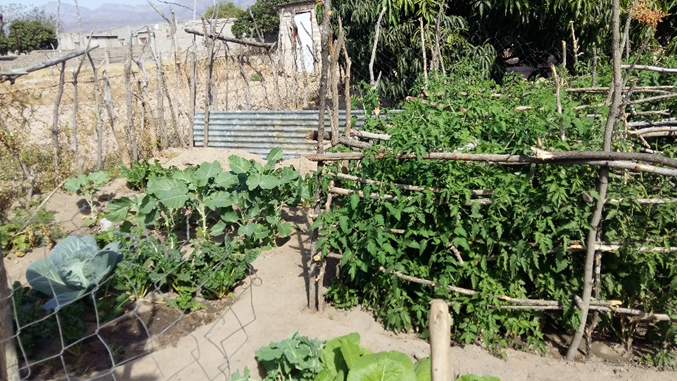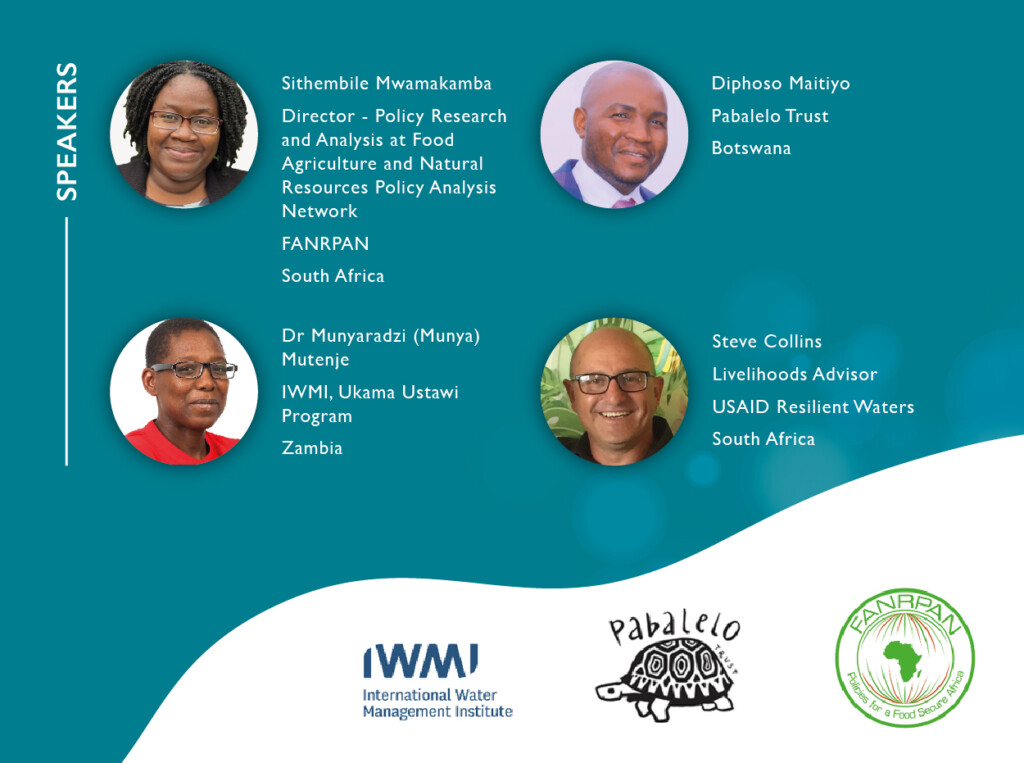
Backyard garden agroecology promoted by MDF supported by RWP.
Promoting Climate Resilient Small-Scale Agricultural Practices:
Lessons From Southern Africa
18 April 23, 11h00-12h30
Register here.
Rural households in Southern Africa face increasing food insecurity as a result of climate change which affects the water cycle and rainfed crop production. Most Southern African small-scale farmers are women who plant low nutrient-rich maize and rely on rain which has become unpredictable. As a result, the USAID Resilient Waters Program in partnership with rural farmers, NGOs and agricultural scientists have promoted Climate Resilient Agriculture practices across the region. Resilient Waters and partners built the capacity of small-scale rural farmers to produce more and diversified food crops using (i) water-efficient approaches, (ii) agro-ecology that mixes different crops, and (iii) minimum tillage aimed at protecting sensitive crops from increasing heat and promoting better nutrition.
Join Resilient Waters and its partners to reflect on lessons learned while implementing these innovative rural development interventions.

Provisional Agenda:
11h00: Welcome and introduction: Kule Chitepo, USAID Resilient Waters Program
11h05: Setting the scene: Steve Collins, USAID Resilient Waters Program
Promoting Climate Resilient Small-Scale Agricultural Practices: Lessons from Southern Africa Facilitator: Steve Collins, USAID Resilient Waters Program
11h15: Lessons in transitioning to climate-resilient farming systems in Sub-Saharan Africa: Sithembile Mwamakamba, FANRPAN
Discussion Session Moderator: Steve Collins, USAID Resilient Waters Program
12h00: Discussion
12h25: Closure

